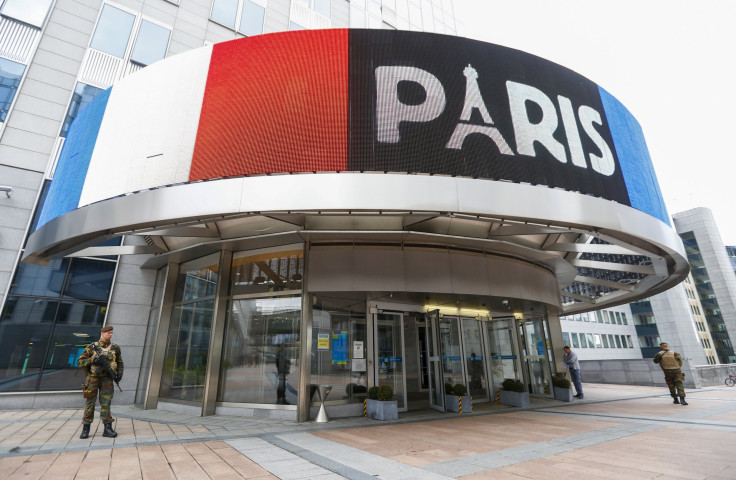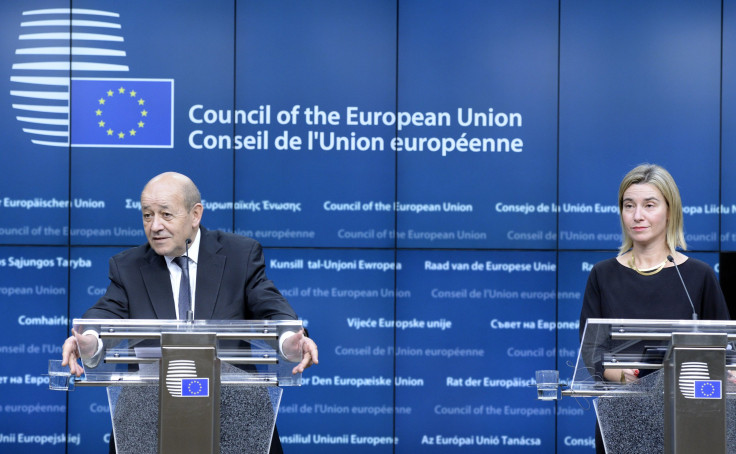Paris Attacks: France Seeks EU's Help In Fight Against ISIS, Mobilizes 115,000 Security Personnel

France on Tuesday mobilized hundreds of thousands of security personnel and sought the European Union’s help for its missions in the Middle East and Africa in the wake Friday’s deadly attacks in Paris. With the move, France becomes the first country in the EU to invoke the 28-nation bloc’s mutual defense clause that calls on all member states to provide “mutual aid and assistance.”
“France cannot do everything, in the Sahel, in the Central African Republic, in the Levant and then secure its national territory,” French defense minister Jean-Yves Le Drian reportedly said, during a meeting of EU defense ministers in Brussels Tuesday, where he invoked the EU's Article 42.7 mutual assistance clause.
While the exact nature of assistance -- including military support -- the EU might provide still needs to be discussed, EU’s foreign policy chief Federica Mogherini tweeted within minutes that all 28 member states had “replied in unison: ‘Yes.’”
Article 42.7 of the Treaty on European Union says that “if a member state is the victim of armed aggression on its territory, the other member states shall have toward it an obligation of aid and assistance by all the means in their power.”

The provision has never before been used and requires unanimous support of all EU members. France could also invoke the NATO’s Article 5 -- the collective defense clause -- that declares an attack against one ally to be an attack against all. The NATO provision was invoked only once before -- in 2001 by the United States after the Sept. 11 attacks.
“I cannot see that we are moving towards such a situation,” German Foreign Minister Frank-Walter Steinmeier reportedly said Monday, when asked about whether Paris is likely to invoke the NATO clause. On Tuesday, Germany reiterated its pledge to provide France the “help and support” it needs.
Meanwhile, following a night of fresh airstrikes in Syria and police raids in suspected militant hideouts in France, the country’s Interior Minister Bernard Cazeneuve announced the mobilization of 115,000 police, gendarmes and military personnel “over the whole of our national territory to insure the protection of French people.”
The increased security spending this would incur, including the cost of carrying out airstrikes in Syria, means that France is unlikely to meet the EU’s 3 percent deficit target.
Speaking to local media Tuesday, French Prime Minister Manuel Valls put security ahead of the deficit cuts and said the targets will “necessarily be exceeded,” and that the European Commission “must understand.”
The commission, on its part, indicated that it would not try to block France’s increased spending on implementing new security measures, and adopt an “intelligent and humane” approach, according to media reports.
“One thing that is clear in the current circumstances is that in this terrible moment the protection of citizens, the security of citizens in France and Europe is the priority,” Pierre Moscovici, the European commissioner for economic and financial affairs, said.
© Copyright IBTimes 2024. All rights reserved.






















